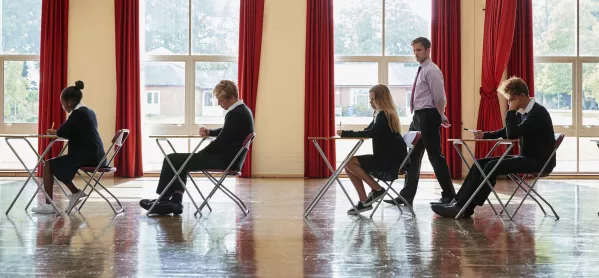- Home
- The GCSE results gender gap: are study habits a factor?
The GCSE results gender gap: are study habits a factor?

As ever, the gender gap in GCSE results made headlines this year. Not least because of the fact that girls are closing the gap in subjects in which boys have done better in the past.
In maths, for example, the proportion female entries scoring an A/7 or above was at 15.5 per cent, up from 14.9 last year, while boys saw a small drop to 16.7 per cent, compared with 16.8 in 2018.
Conversely, across a wide range of subjects - from biology to engineering to languages - girls are still outperforming boys - and the gap appears to be widening.
Quick read: 4 questions you need to ask about ability grouping
Quick listen: GCSEs: what has been the impact of the shift to linear exams?
From the magazine: How ‘journal clubs’ can help teachers to evaluate pedagogical research
Of course, the key question is why is this? Recent evidence of potential gender differences in the study habits of male and female students may, in part, explain the differences we’re seeing.
One possibility is that female pupils simply revise more for exams. There’s some evidence to support this. For example, research led by Stephanie Ruffing from 2015 found that female students appeared to apply a wide range of learning strategies more frequently than male students.
However, not all study habits are equal and quantity doesn’t equal quality. As such, it may be that the issue isn’t a question of how much independent study male and female pupils do, but the strategies they use. Here, research has found some concerning points.
The GCSE results gender gap
Work in 2012 by Daniel Willingham argued that we need to explicitly teach students how to study effectively as, left to their own devices, they tend to adopt less effective techniques. One of the problems is that pupils are readily “fooled” into thinking that less effective strategies work for them.
Similarly, research by Professor Robert Bjork et al suggested that what students believe are effective activities for learning are often at odds with reality. And worse, these ineffective strategies lead to overconfidence about how much they have learned.
Furthermore, Professor John Dunlosky et al (2013) reviewed the effectiveness of a range of specific approaches to independent study - summarised in an accessible article for American Educator. In the review, they found that many of the approaches popular with students, like re-reading or highlighting notes, were far from the most effective. A much more effective strategy they identified was practice testing - sometimes also called retrieval practice or self-testing.
A recent Education Endowment Foundation guidance report recommends pupils are given explicit guidance to help them develop more accurate judgements about their learning (an example of metacognition) to overcome the shortcomings their own attempts at self-learning often bring.
Improve revision, reduce stress
If we apply this issue to the gender gap, then might it be the case that female pupils not only revise more than boys but, more importantly, revise more effectively? Well, perhaps. A study by Professor Richard Griffin found that male students tended to use study strategies like self-testing less often than female students.
No doubt there are many other factors that underpin the difference in GCSE performance between male and female pupils, but a difference like this in study strategies potentially informs a way to improve outcomes for boys.
Encouraging pupils to use more effective independent study strategies like self-testing may have an additional side benefit, too. There’s emerging evidence that as well as being a highly effective approach to revision, self-testing may also act to help reduce the feelings of anxiety that pupils experience in the run-up to high-stakes assessments and exams.
It’s possible that modelling and practising retrieval practice with our pupils, and encouraging them to adopt them in their independent study, might help to not only narrow the gender gap but also reduce the potential stress.
GCSEs may be a long way off but they always loom large on the horizon. Schools would do well to consider now how they can ensure that pupils have the tools at their disposal to revise as well as possible come revision season to provide the best possible chance of success for all pupils.
Keep reading for just £1 per month
You've reached your limit of free articles this month. Subscribe for £1 per month for three months and get:
- Unlimited access to all Tes magazine content
- Exclusive subscriber-only stories
- Award-winning email newsletters



